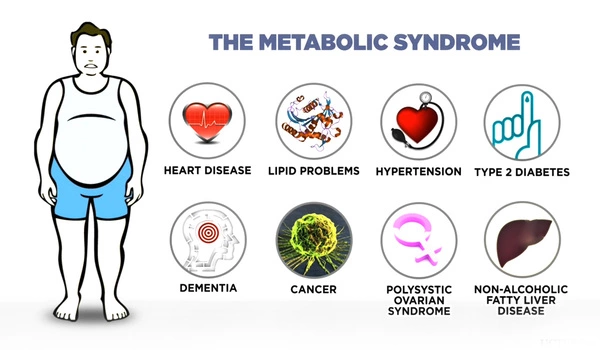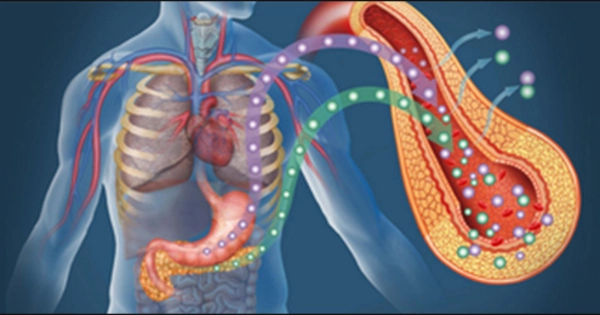Metabolism is the process by which your body obtains or generates energy from the food you consume. Proteins, carbohydrates, and fats comprise food. Chemicals in your digestive system break down food components into sugars and acids, which are used as fuel by your body. Your body can either use this fuel immediately or store it in tissues such as your liver, muscles, and body fat.
A metabolic disorder is one in which the body’s processing and distribution of macronutrients such as proteins, fats, and carbohydrates is hampered. When abnormal chemical reactions in the body disrupt the normal metabolic process, metabolic disorders occur. It is also known as an inherited single-gene anomaly, with the majority being autosomal recessive.
Metabolic disorder is a collection of risk factors that increase the chance of developing heart disease, stroke, and diabetes. Losing weight, exercise, and dietary changes can help prevent or reverse metabolic syndrome.
Signs and symptoms
Metabolic syndrome is a grouping of conditions that increase your risk of heart disease, stroke, and type 2 diabetes. Lethargy, weight loss, jaundice, and seizures are some of the symptoms of metabolic disorders. High blood pressure, high blood sugar, excess body fat around the waist, and abnormal cholesterol or triglyceride levels are examples of these conditions.
The symptoms expressed would differ depending on the type of metabolic disorder. Acute symptoms, late-onset acute symptoms, progressive general symptoms, and permanent symptoms are the four types of symptoms. If you have metabolic syndrome or any of its components, making drastic lifestyle changes can postpone or even prevent the onset of serious health problems.

Causes
Inherited metabolic disorders, which occur when a defective gene causes an enzyme deficiency, are one cause of metabolic disorders. It is closely related to being overweight or obese, as well as being inactive. These diseases, which have numerous subtypes, are known as inborn metabolic errors. When the liver or pancreas do not function properly, metabolic diseases can develop.
It has also been linked to a condition known as insulin resistance. Normally, your digestive system converts the foods you consume into sugar. Insulin is a hormone produced by your pancreas that aids in the entry of sugar into your cells for use as fuel.
Diagnosis
A metabolic disorder occurs when your body’s normal chemical reactions are disrupted. When this happens, you may have too much of one substance or not enough of another that you require to stay healthy. These can occur at birth, and many can be detected through routine screening. If a metabolic disorder is not identified early, it may not be diagnosed until symptoms appear later in life. To diagnose genetic metabolic disorders, specific blood and DNA tests can be performed.
The gut microbiota, a population of microbes that live in the human digestive system, also plays an important role in metabolism and has a generally beneficial effect on its host. Abnormal gut microbiota can play a role in metabolic disorder-related obesity in terms of pathophysiological/mechanism interactions.
















